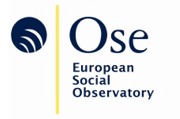The OSE was contracted by the European Trade Union Institute (ETUI) and the Austrian Chamber of Labour (AK Europa) to conduct research which resulted in a report entitled “From the European Semester to the Recovery and Resilience Facility. Some social actors are (not) resurfacing” as well as a Policy Brief on the same topic. The research examined how and why the Semester became part of the governance of the RRF. It also asked to what extent this new set-up has changed the power balance among key EU actors (for example, financial and economic actors versus institutional social affairs actors)? Drawing on extensive document analysis and 32 semi-structured elite interviews, the research project concludes that initially, due to the crisis (and desire for fast action), there was a serious risk that EU institutional social actors were losing the prominence they had previously earned. They gradually reclaimed their position as the immediacy of the crisis subsided and a longer-term focus emerged. EU civil servants also engaged with social partners on both sides of industry, even though it is questionable whether this consultation has been meaningful.
Researchers involved in this project: Bart Vanhercke (lead reseacher), Amy Verdun (University of Victoria, Canada), Angelina Atanasova, Sebastiano Sabato, Slavina Spasova and Malcolm Thomson (University of Victoria)
